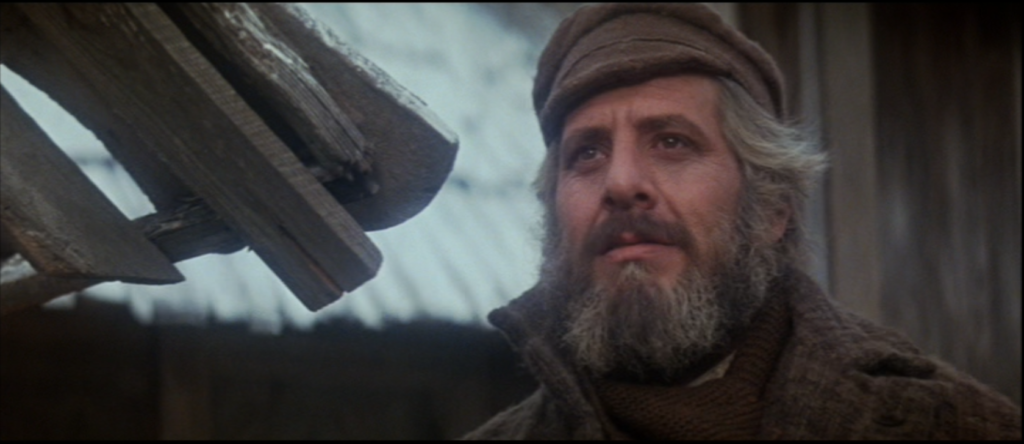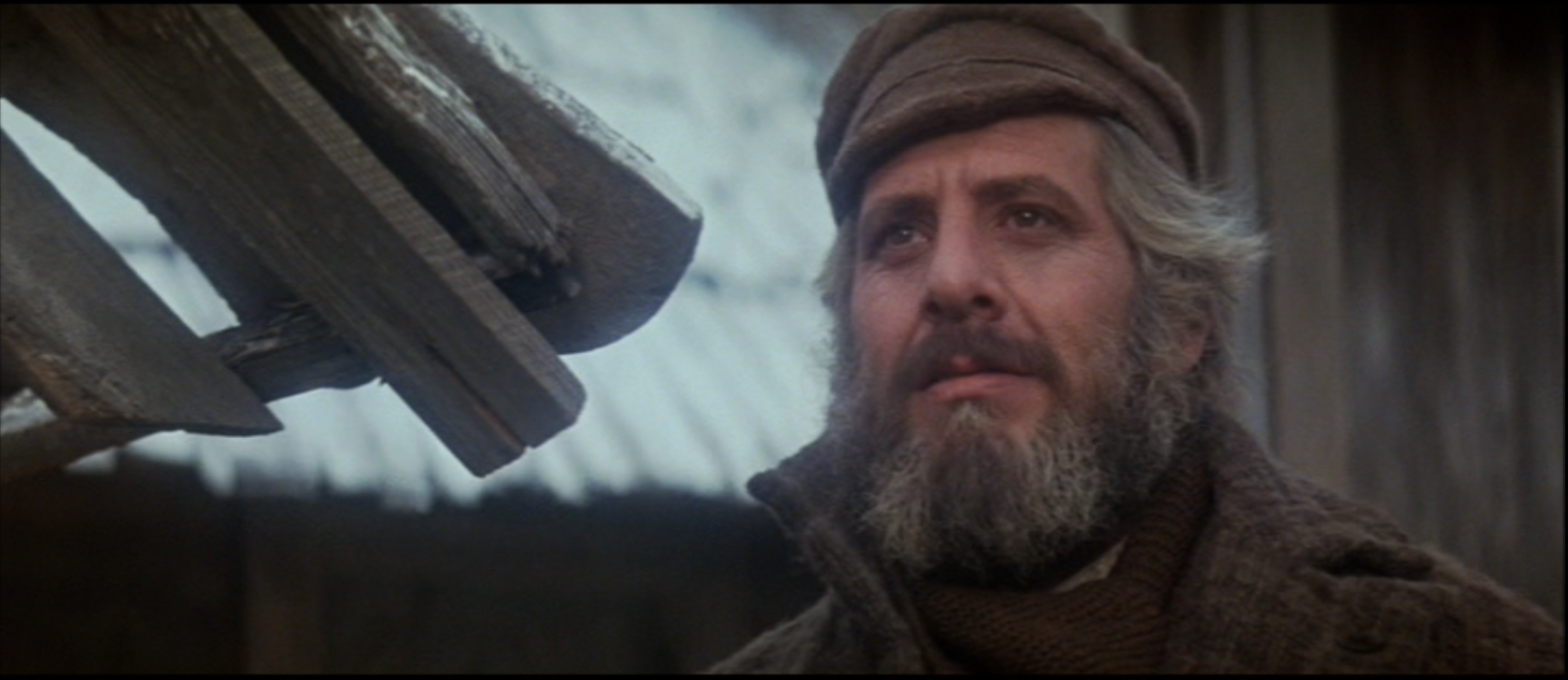Movie Review: Fiddler on the Roof (1971) directed by Norman Jewison
Anatevka at the turn of the Twentieth Century is a small village in the Russian Empire, what is now Ukraine. It is home to a community of Jews, as well as Orthodox Christians. Our protagonist is Tevye (Chaim Topol), an impoverished milkman who has been blessed by God with kvetching wife Golde (Norma Crane) and five daughters for whom he has no dowries. At the beginning of the story, Tevye’s horse goes lame, and he must pull the milk cart himself, never managing to raise enough money to buy a replacement.

Despite the dowry problem, Tevye’s daughters are not without prospects. Lazar Wolf the butcher (Paul Mann), a middle-aged widower, fancies Tevye’s eldest, Tzaitel (Rosalind Harris). She, however, wants her childhood friend, the also impoverished tailor Motel (Leonard Frey). Lazar is prosperous, and though he is old enough to be Tzaitel’s father, seems to really care for her. So Tevye agrees to this arranged match–until Tzaitel point-blank refuses. Only when he sees that she really loves Motel, and the young man shows a spine, does he relent.
But more woes are on their way, for Tevye has four more daughters, each with their own minds. And the Russian government is putting pressure on the local Constable (Louis Zorich) to carry out a pogrom, driving the Jews from their homes.
This is one of the all-time great musicals, adapted from the stories of Sholom Aleichem about the life and times of Tevye and his struggles to hold on to the traditions of his people. Despite moments of joy, this is a sad story, as tradition breaks down and at the end the community is scattered to the winds. Still, Tevye and his remaining family are alive, and the fiddler comes down off the roof to follow them.
The unique color balance of the movie is due to it being shot through a brown nylon stocking covering the camera lens. And the music is awesome, not just one or two bangers like a lot of musicals, but good all the way through, and an excellent violin solo by Isaac Stern. The Yugoslavian (now Croatian) countryside fills in for Ukraine near Kyiv. (During the recent Russian invasion, Ukrainian refugees named their settlement Anatevka after the fictional village.) The acting is also good.
Content note: Antisemitism, naturally. When Teyve’s third daughter Chava (Neva Small) decides to marry a Christian, this is more than the old man can stomach and he disowns her. Alcohol is imbibed, sometimes to excess. The themes and three-hour length may make it difficult for younger viewers. I’d say tweens and below should have grownup guidance, and the short entre d’ act (intermission) is a good time to pause, take a break, and discuss what’s happened before getting into the more difficult moments in the second part.
This remains one of the great movies, and well worth rewatching when you have the time.

